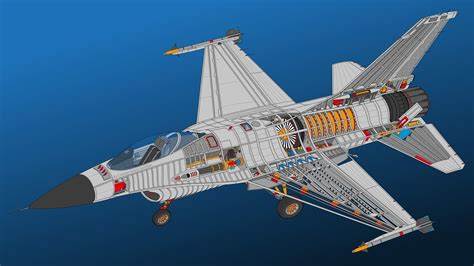Table of Contents
Introduction
Becoming an aeronautical engineer is a dream shared by many individuals who have a passion for aviation and a desire to contribute to the aerospace industry. Aeronautical engineering involves the design, development, testing, and production of aircraft and spacecraft. This article outlines the steps to embark on a rewarding career as an aeronautical engineer in India.
What is Aeronautical Engineering?
Aeronautical engineering is a branch of aerospace engineering that focuses on the design, development, and maintenance of aircraft, including airplanes and helicopters. It also involves the study of aerodynamics, propulsion systems, avionics, and materials used in aircraft construction.
Educational Requirements
To become an aeronautical engineer, a strong foundation in science and mathematics is essential. Students who have a keen interest in physics, mathematics, and computer science are well-suited for this field.
Pursue an Undergraduate Degree
The first step is to enroll in a reputed engineering college or university and pursue a bachelor’s degree in aeronautical engineering or aerospace engineering. The undergraduate program provides students with fundamental knowledge in various engineering disciplines related to aerospace.
Specialization Areas in Aeronautical Engineering
During the undergraduate program, students can choose to specialize in specific areas such as aerodynamics, structures, propulsion, or avionics. Specialization allows students to gain in-depth expertise in their chosen field.
Gaining Practical Experience
Practical experience is crucial for aspiring aeronautical engineers. Students should actively participate in engineering projects, workshops, and competitions to apply theoretical knowledge to real-world scenarios.
Internships and Training Programs
Seeking internships with aerospace companies is an excellent way to gain hands-on experience. Many organizations offer internships and training programs to students, providing valuable exposure to the industry.
Building a Strong Portfolio
Aspiring aeronautical engineers should build a strong portfolio that showcases their academic achievements, projects, and practical experiences. A well-organized portfolio can impress potential employers and increase job opportunities.
Master’s Degree or Higher Education
While a bachelor’s degree is sufficient for entry-level positions, obtaining a master’s degree or pursuing higher education can lead to more advanced roles and opportunities for research and development.
Skills and Qualities of an Aeronautical Engineer
A successful aeronautical engineer possesses various skills, including problem-solving, critical thinking, attention to detail, and creativity. Good communication and teamwork skills are also essential in this collaborative field.
Job Opportunities in India
India’s aerospace industry is growing rapidly, creating numerous job opportunities for aeronautical engineers. The aviation sector, defense organizations, and research institutions are among the major employers.
Aeronautical Engineering Companies in India
Several prominent companies in India are involved in aeronautical engineering, including Hindustan Aeronautics Limited (HAL), Bharat Electronics Limited (BEL), and Tata Advanced Systems Limited (TASL).
Government Jobs
Aspiring aeronautical engineers can also explore job opportunities in various government organizations, such as the Indian Space Research Organization (ISRO) and the Defense Research and Development Organization (DRDO).
Research and Development Opportunities
For those interested in pushing the boundaries of aerospace technology, research and development positions offer a chance to work on cutting-edge projects and innovations.
Challenges in the Field
Aeronautical engineering comes with its own set of challenges, including strict safety regulations, evolving technology, and competition. Engineers must stay updated with the latest advancements to meet industry demands.
Conclusion
Becoming an aeronautical engineer in India is an exciting journey that requires dedication, passion, and continuous learning. By pursuing the right education, gaining practical experience, and staying updated with industry trends, aspiring engineers can soar to new heights in their careers.
FAQs
Q: What qualifications are required to become an aeronautical engineer in India?
A: Aspiring aeronautical engineers need to complete a bachelor’s degree in aeronautical engineering or aerospace engineering.
Q: Is a master’s degree necessary for a career in aeronautical engineering?
A: While a bachelor’s degree is sufficient for entry-level positions, a master’s degree can lead to more advanced roles and research opportunities.
Q: What skills are essential for an aeronautical engineer?
A: Aeronautical engineers need strong problem-solving, critical thinking, and communication skills, along with attention to detail and creativity.
Q: Which companies offer job opportunities for aeronautical engineers in India?
A: Several companies, including HAL, BEL, and TASL, are involved in aeronautical engineering in India.
Q: What are some of the challenges in the field of aeronautical engineering?
A: Aeronautical engineers face challenges related to safety regulations, rapidly evolving technology, and market competition.




